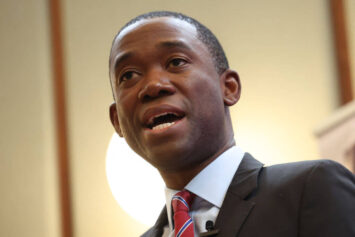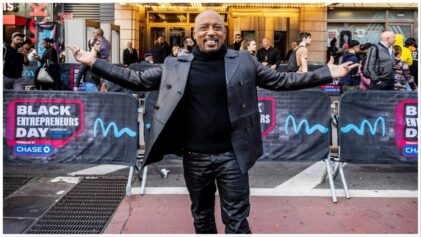Mandatory COVID-19 vaccinations are impacting hundreds of college campuses across the nation as the fall semester begins. Many Historically Black Colleges and Universities, including those in Atlanta, have mandated students get the shot before returning to class this year.
“All the schools have over 85 percent compliance with fully vaccinated students,” said Michael Hodge, Executive Director of Atlanta University Center Consortium Inc.
Among the students masked up and vaccinated is Morehouse College freshman Malik Richardson.
“Overall, I do feel safe here at the campus and everything seems to work out fine, everyone is nice and everyone on campus is vaccinated, and we all wear our masks just to be safe, and everyone is super friendly and don’t seem to have a problem with any of the restrictions,” said Richardson.
The Atlanta University Center Consortium which is composed of Clark Atlanta University, Morehouse and Spelman colleges, and the Morehouse School of Medicine notified students and staff in the spring that come fall semester they must be fully vaccinated.
Michael Hodge, executive director for the AUCC, says the schools have seen very low COVID positivity rates. On its weekly dashboard the rate is at 0.78 percent.
But that alone did not initially quell the fears of a group of Spelman faculty members who sent an email to students like Gabrielle Morse, a senior at Spelman, expressing their concerns about face-to-face learning.
“I definitely don’t blame them for wanting to go virtual. I personally would be a little disappointed because virtual school for me last year was hard, but I completely understand their concern, they have families and people they are taking care of, so if we did go virtual, I would be a little sad, but I would totally get it,” said Morse.
“The faculty at Spelman College were excited about returning to in-person instruction,” the email read in part. “However, much to our disappointment, faculty have not received clear and enforceable protocol and safety guidelines that will ensure our health and wellbeing when teaching face-to-face. While awaiting acceptable responses to these concerns, we have decided not to teach in-person. Most faculty will use alternative instructional methods for course delivery.”
Hodge says since that email was issued, concerned Spelman faculty members were reassured COVID safety measures were in place.
“As far as the faculty, yes, they were concerned, rightfully so. We explained to them, showed them what we have in place, showed them the playbook, all those things we’ve already done to help mitigate any spread, I think they were comfortable enough to say, OK, we’re back in the classroom on Monday,” said Hodge.
But as talk of vaccines and masks became a political hot-button issue, not all schools were able to issue any mandates, including Florida A&M University.
“We cannot do a mandate. Cajole, entice but no mandate,” FAMU Executive Director of Student Health Services Tanya Tatum said.
Florida Gov. Ron DeSantis issued an executive order that took effect in July prohibiting Florida colleges from mandating the vaccine.
The executive order leaves schools like FAMU relying on incentives, including gift cards and laptops, and education campaigns to boost vaccinations.
Tatum said that while she could not provide specifics on the number of vaccinated people on campus, she did say many incoming freshmen living on campus are vaccinated.
“They did have to show proof of vaccination, or a negative test result within a couple of days and within that particular population, 70 percent moving into campus housing have been vaccinated,” said Tatum.
Dr. Reginald Fennell serves on the American College Health Association task force. He says the delta variant of the virus is affecting younger people. Fennell also says because college students live in congregated settings often in close quarters, vaccinations are important.
Fennell understands vaccine hesitancy exists, but points to other illnesses including polio and measles as proof vaccines work.
“That’s true of a number of illnesses that we’ve been able to eradicate so now we have generations of people who haven’t seen measles, who haven’t seen polio, not understanding we haven’t seen these illnesses because we have effective vaccinations,” said Dr. Fennell.
The need for vaccinations among Black communities is another focus point for Fennell due to the impact the COVID virus has had.
“I think it’s on all of us to do what we can to try and tackle this especially since this is killing so many Black and brown people, I mean all Americans, but we see disproportionately once again a health condition that’s affecting us,” said Fennell.


